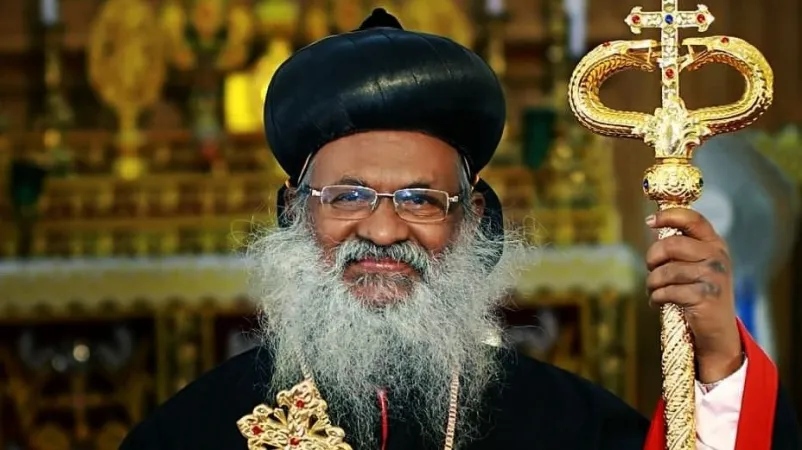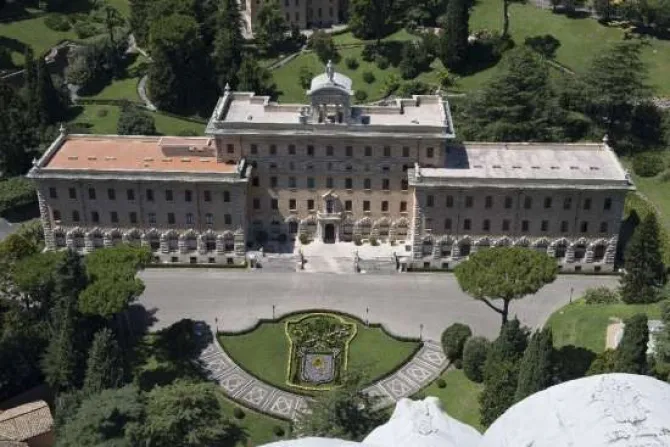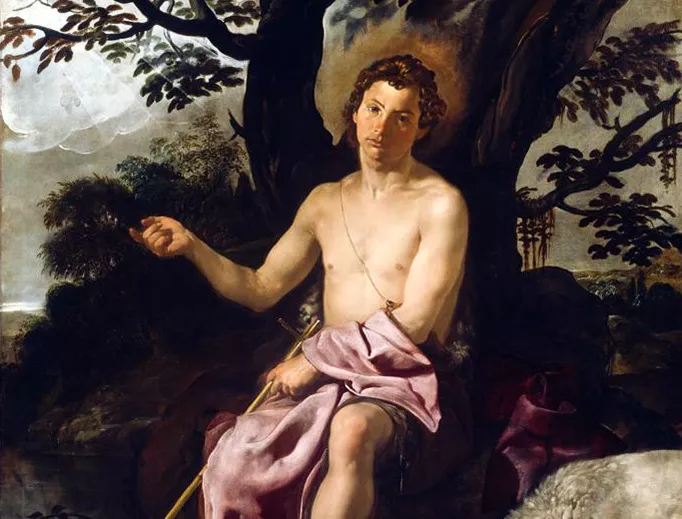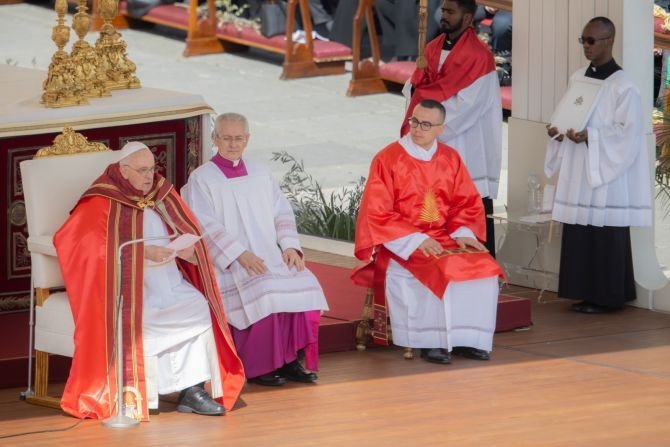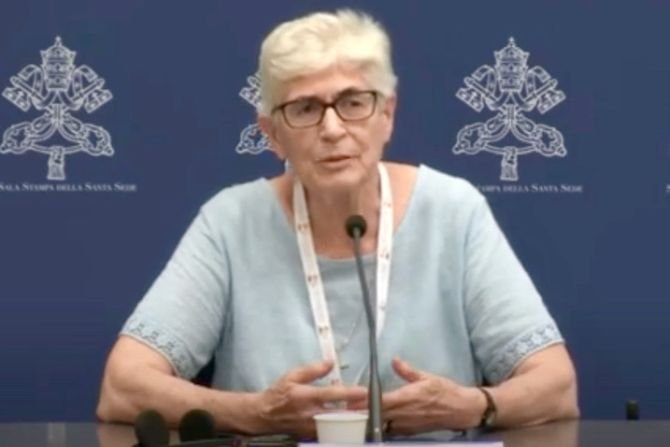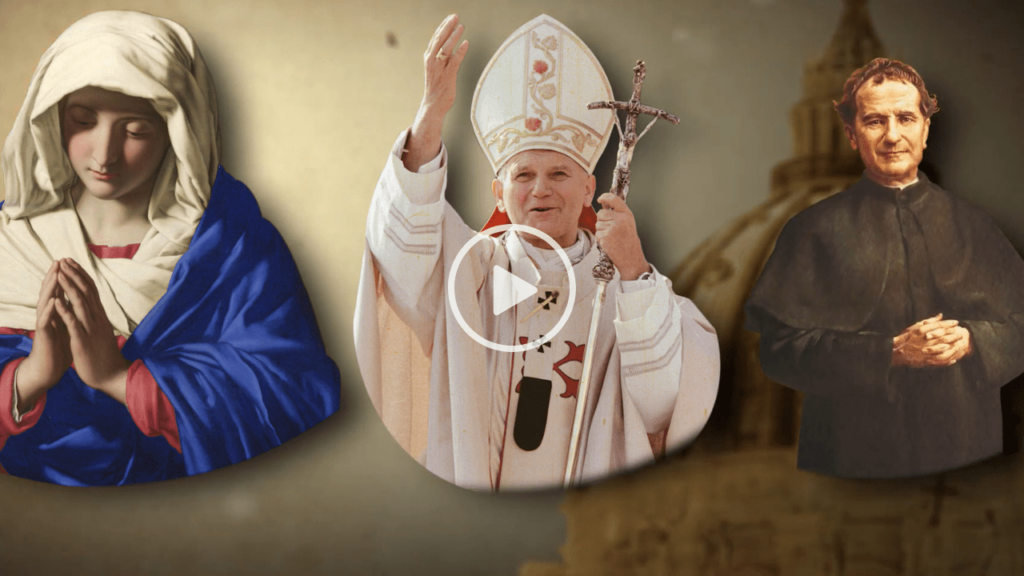The Catholic Church in Italy generated fresh controversy last week when it published a new document on the formation of priests that some media and members of the clergy interpreted as an opening toward the ordination of homosexual men.
Bishop Stefano Manetti of Fiesole, Italy, president of the bishops’ commission for the clergy and consecrated life, has subsequently sought to nip those interpretations in the bud by clarifying in Avvenire, the Italian Bishops Conference’ newspaper, that “this is not a correct reading” of the text titled “The Formation of Priests in Italian Churches: Guidelines and Rules for Seminaries” and posted Jan. 9 on the website of the Dicastery for the Clergy.
The referenced norms were initially approved last November by the Italian bishops when they met in their general assembly in Assisi. Paragraph 44 of the text states among other things that “the objective of the formation of the candidate for the priesthood in the affective-sexual sphere is the ability to accept as a gift, freely choose, and responsibly live chastity in celibacy.”
After the release of the original text, Father James Martin, a Jesuit and promoter of the LGBTQ Outreach apostolate, reacted in a post on X, providing his own translation of the Italian text: “In the training process, when reference is made to homosexual tendencies, it is also appropriate not to reduce discernment only to this aspect but, as for every candidate, to grasp its meaning in the overall picture of the young person’s personality, so that, by getting to know each other and integrating the objectives inherent to the human and presbyteral vocation, reaches a general harmony.”
“This is the first time I’ve seen in a Vatican-approved document the suggestion that discernment about whether a gay man may enter the seminary cannot simply be determined by his sexual orientation,” Martin commented.
“My reading of this — and it is only my reading — is that if a gay man is able to lead a healthy chaste and celibate life, he may be considered for admission to the seminary. So, as I see it, this is something of a step forward,” the Jesuit priest concluded.
In a Jan. 10 article on the subject, the New York Times trumpeted that the “Vatican allows Italian gay men to train to be priests, if they remain celibate” and that “candidates for the seminary should not be disqualified based on sexual orientation, according to new Church guidelines in Italy.”
According to Manetti, whose statements were also published on Jan. 10, this approach “is not a correct reading because the paragraph reiterates the norms of the magisterium at the beginning.”
According to Avvenire, paragraph 44 “reiterates, word for word, what is established in No. 199 of the document issued Dec. 8, 2016, by the then-Congregation for the Clergy titled ‘The Gift of the Priestly Vocation: Ratio Fundamentalis Institutionis Sacerdotalis,’ which in turn takes up the content of the instruction published by the then-Congregation for Catholic Education in 2005.”
Both documents establish that persons with “deep-seated” homosexual tendencies cannot be admitted to seminaries.
“The Gift of the Priestly Vocation” states that “in relation to persons with homosexual tendencies who seek admission to seminary, or discover such a situation in the course of formation, consistent with her own magisterium, the Church, while profoundly respecting the persons in question, cannot admit to the seminary or to holy orders those who practise homosexuality, present deep-seated homosexual tendencies, or support the so-called ‘gay culture.’ Such persons, in fact, find themselves in a situation that gravely hinders them from relating correctly to men and women.”
Avvenire points out that what is new in the document is in the “discernment” of candidates, especially in the first three years of formation.
“We intend to put the person first by helping candidates for the priesthood to clarify within themselves … an accompaniment to self-knowledge that is often lacking in the younger generations and that does not exclude even the young men arriving at the seminaries,” Manetti explained to Avvenire.
This story was first published by ACI Prensa, CNA’s Spanish-language news partner. It has been translated and adapted by CNA.


